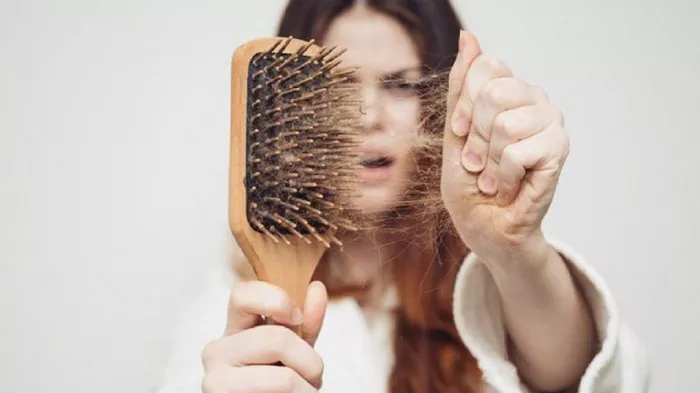The birth of a child is a joyous occasion, but for many new mothers, the postpartum period brings unexpected challenges. One common concern that surfaces around the fourth month after giving birth is significant hair loss. While it may be alarming to witness a sudden increase in hair shedding, it’s essential to understand that postpartum hair loss is a natural and temporary phase. In this article, we will delve into the reasons behind this phenomenon and offer insights into managing and coping with postpartum hair loss.
The Hormonal Rollercoaster
During pregnancy, hormonal changes lead to an increased number of hair follicles in the growth phase, resulting in thicker, fuller hair. However, after childbirth, these hormones experience a dramatic drop. Estrogen, which is responsible for maintaining the hair in the growth phase, decreases significantly. This sudden hormonal shift can trigger a higher percentage of hairs to enter the resting phase and subsequently fall out.
Telogen Effluvium and Hair Growth Cycle
The scientific term for postpartum hair loss is telogen effluvium. This condition occurs when a significant number of hair follicles simultaneously enter the telogen (resting) phase of the hair growth cycle. Typically, hair growth follows a cyclical pattern with phases of growth, rest, and shedding. During pregnancy, the increased estrogen levels extend the growth phase, leading to luscious locks. Postpartum, as hormone levels normalize, more hairs shift into the resting phase, causing noticeable shedding.
Duration and Normalcy
It’s crucial for new mothers to understand that postpartum hair loss is usually a temporary condition. While it can be distressing, the shedding typically peaks around the fourth month after childbirth and gradually subsides. Most women notice a significant improvement by the time their baby reaches their first birthday. If hair loss persists or worsens, it is advisable to consult with a healthcare professional to rule out any underlying health issues.
Managing Postpartum Hair Loss
Although postpartum hair loss is a natural process, there are steps new mothers can take to minimize its impact and support overall hair health:
1. Balanced Nutrition: Ensure you are consuming a well-balanced diet rich in vitamins and minerals essential for hair health, such as iron, zinc, and biotin.
2. Gentle Hair Care: Avoid excessive styling, heat treatments, and tight hairstyles that can contribute to hair breakage. Use a mild, sulfate-free shampoo and conditioner to keep your hair clean and nourished.
3. Supplements: Consult with your healthcare provider about the appropriateness of supplements to address any nutritional deficiencies contributing to hair loss.
4. Stress Management: Incorporate stress-reducing activities into your daily routine, such as meditation, yoga, or deep breathing exercises, as stress can exacerbate hair loss.
When to Seek Professional Advice?
While postpartum hair loss is generally normal, certain signs may warrant a visit to a healthcare professional:
1. Excessive Hair Loss: If you notice an unusually high amount of hair loss that doesn’t improve over time, consult with a healthcare provider to rule out underlying issues.
2. Bald Patches or Thinning: Sudden, localized bald patches or significant thinning may indicate a more serious condition that requires attention.
3. Other Symptoms: If you experience other concerning symptoms alongside hair loss, such as fatigue, changes in weight, or irregular menstrual cycles, it’s crucial to seek medical advice.
See Also: [Revealed!] Is Hair Loss a Possible Sign of Pregnancy?
Conclusion:
In the challenging postpartum period, hair loss may add to the stress and adjustments new mothers are already facing. Understanding the underlying reasons for postpartum hair loss and taking proactive steps to support hair health can make this phase more manageable. Remember that, in most cases, postpartum hair loss is temporary, and with time, your hair will regain its pre-pregnancy thickness. If concerns persist, seeking guidance from a healthcare professional ensures a comprehensive approach to your overall well-being during this transformative time.


